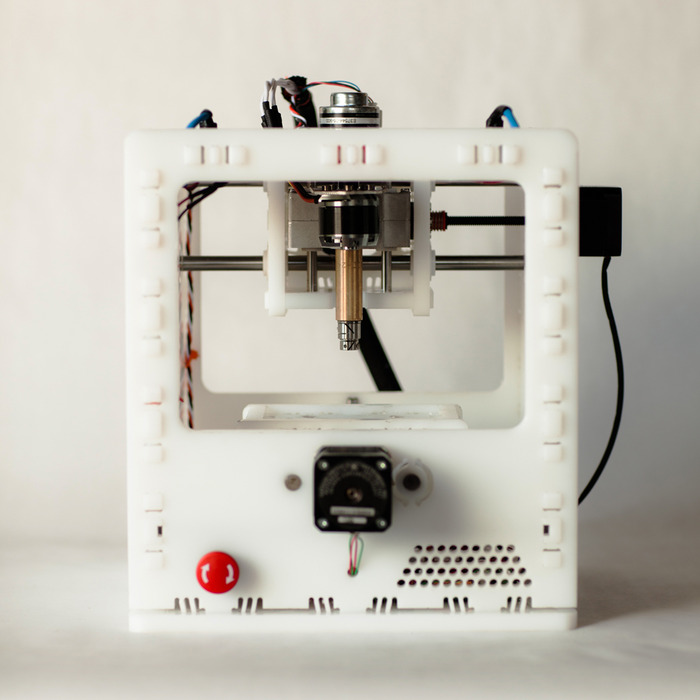The Latest Hardware Hacking Tool: A Machine that Carves Custom Circuit Boards
A cool-looking Kickstarter project from San Francisco-based machine company Otherfab offers an affordable, portable way for anyone to make custom circuit boards that can be used for building your own electronics or adding connectivity to existing devices.

Called Othermill, it’s a 10-inch-square three-axis, computer-controlled mill that etches or cuts away at a solid material. And while Otherfab says it’s intended for printing your own PCBs, it’s not just for electronics hobbyists. The group (which, by the way, is a team within research lab Otherlab) also points out some of the other activities you could do with it, including making custom jewelry from wood or non-ferrous metals and molds. With one of these, a 3-D printer, and a few other tools, I could probably start my own custom techie doodad business.
The Othermill is already gaining lots of interest. Otherfab started a Kickstarter campaign earlier this month in hopes of bringing in $50,000 for the project; in less than a day it surpassed that goal, and as of late Wednesday it had raised nearly $180,000. The campaign’s rewards included a limited number of Othermills for pledges of $999 and up, a number of which are already spoken for (if you’d still like to get one, they’re now available with pledges of $1,399 and up).
Keep Reading
Most Popular
Large language models can do jaw-dropping things. But nobody knows exactly why.
And that's a problem. Figuring it out is one of the biggest scientific puzzles of our time and a crucial step towards controlling more powerful future models.
How scientists traced a mysterious covid case back to six toilets
When wastewater surveillance turns into a hunt for a single infected individual, the ethics get tricky.
The problem with plug-in hybrids? Their drivers.
Plug-in hybrids are often sold as a transition to EVs, but new data from Europe shows we’re still underestimating the emissions they produce.
Stay connected
Get the latest updates from
MIT Technology Review
Discover special offers, top stories, upcoming events, and more.